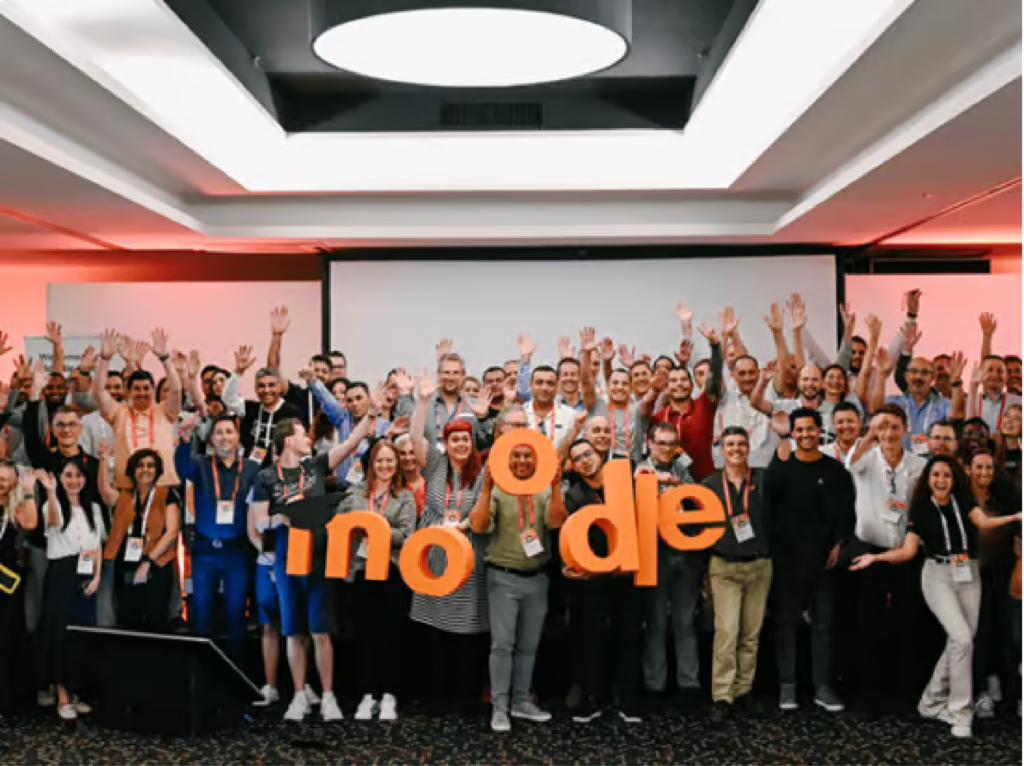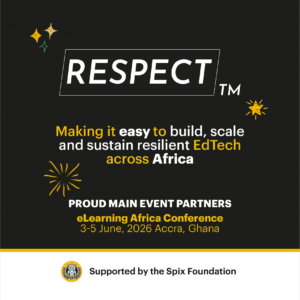In the evolving landscape of education and professional development, the future of learning stands at a fascinating crossroads. In this blog post, we will look at the top trends in learning, offering a panoramic view of how they are reshaping the learning landscape. Read more to navigate the multifaceted dimensions of what the future of the space looks like:
Self-directed and continuous learning
The concept of self-directed and continuous learning is becoming increasingly popular, reshaping our approach to knowledge and skill acquisition in both formal education and workplace settings. This evolving landscape reflects a world where traditional career paths are being replaced by more dynamic and flexible models, compelling learners to adapt and grow continuously.
The Future of Learning Report 2022 highlights this shift, noting the diminishing concept of a ‘career for life.’ With regular job switching and the expansion of the gig economy, there is an increasing need for a workforce equipped with a broad range of skills and the ability to gain qualifications throughout their careers. This shift is underlined by learners increasingly seeking control over their educational journeys, understanding that the ongoing acquisition of knowledge and skills is essential for staying relevant in the rapidly changing world of work. Reflecting this trend, a significant portion of learners, 33%, are choosing online platforms for their flexibility and ability to cater to individual needs and schedules.
Much like how companies such as Uber and Airbnb have reshaped their respective industries without owning traditional assets, the future of education might see universities functioning as the ‘Netflix of learning.’ In this model, learners comfortably source their educational experiences from various platforms, assembling their qualifications to create a personalised and continuously evolving portfolio of skills.
The Future of Learning Report also points out the growing demand for personalised and flexible learning experiences. More than a quarter of learners express a desire to learn in ways that fit their schedules, indicating a move away from traditional educational structures to a more adaptable framework. This drive for flexibility is leading to the rise of hybrid learning models that combine aspects of in-person teaching with the convenience of online platforms. In this future, learners not only seek various learning opportunities but also flexible payment options, reflecting a broader shift towards a more learner-centred, accessible, and customisable education system.
The rise of open learning environments
Another trend that is fundamentally transforming the educational landscape is open learning environments. They expand access and empower learners to have greater control over their educational journey. These progressive spaces include open courses, educational resources, and innovative pedagogies designed to address critical issues of access, accountability, and affordability in education. Furthermore, such environments not only democratise learning but also foster a culture of continuous, self-directed learning, enabling learners to decide what, where, and when they learn. For example, this approach is vividly embodied in the rise of Massive Open Online Courses (MOOCs), which offer flexible and often free access to learning for a diverse, global audience.

Additionally, the adoption of open educational resources is enhancing these environments by providing high-quality, cost-effective study materials. This shift allows for a more personalised and in-depth educational experience, breaking away from the constraints of traditional learning models. Open pedagogies further leverage this by engaging learners in creating and sharing real-world work, thereby enriching their learning experience and providing tangible benefits to their communities. Some of the key advantages of open learning, such as its affordability, accessibility, and the opportunities it offers for individuals to explore new fields without substantial initial investment, are playing a huge role in redefining the expectations and experiences of learners worldwide.
AI and machine learning
AI and machine learning have been on the radar for some time, and they will be here to stay in the future. Thanks to this innovative trend, learning is becoming more personalised, enabling educational experiences that adapt to individual learning preferences and performance.
These intelligent systems can analyse vast amounts of data to create bespoke learning pathways, predict future learning needs, and identify knowledge gaps. By offering content that is tailored to the learner’s pace and preference, AI ensures a more engaging, efficient, and effective learning experience. As technologies continue to advance, they promise to bring even greater levels of personalisation, transforming passive learning into an active, adaptive process that’s moulded to each individual’s unique journey.

The Moodle Workplace Learning Catalogue exemplifies the power of personalisation in learning. As an upcoming feature in Moodle Workplace 4.4, it will allow learners to access a diverse array of courses tailored to their specific needs and interests. This central hub shifts the paradigm from a traditional, manager-assigned learning path to one of self-directed exploration and growth. The Learning Catalogue is a testament to how personalised learning platforms can support both the individual’s desire for growth and the organisational need for skilled and knowledgeable employees.
Another very important role of AI algorithms is the creation of individualised learning pathways by analysing learner data. These data-driven paths are dynamically adjusted based on ongoing performance and feedback, ensuring that the learning journey remains relevant, challenging, and aligned with the learner’s evolving needs and objectives. By continuously adapting to the learner’s progress, these pathways ensure that each educational experience is as efficient and effective as possible.
Moodle is committed to providing AI solutions that are transparent, configurable, and adaptable to evolving regulations, especially in the EU education sector. To achieve this, Moodle incorporates AI capabilities through open-source plugins, which are optional extensions interfacing with AI engines. These plugins, approved and vetted by Moodle, enhance the online learning ecosystem by integrating advanced AI functionalities.
The Moodle community has developed a variety of plugins to integrate generative AI into Moodle, offering diverse applications. Key plugins include the AI Connector, which links Moodle to AI applications like ChatGPT and Dall-E, allowing for content generation and transformation to suit different learners and improve accessibility.
The AI Text to Questions Generator creates dynamic quizzes tailored to individual learner performance, offering a personalised assessment experience. The OpenAI Chat Block plugin integrates conversational AI into Moodle, facilitating interactive learning and information seeking. Additionally, the AI Text-to-Image plugin enables the creation of images from text within Moodle, aiding in creating visually engaging educational materials.
Looking ahead, Moodle’s roadmap includes the development of in-house plugins for creating engaging content within the text editor and building AI tools for enhanced learning support, like AI-driven assignment feedback and intent monitoring in forums. This approach underscores Moodle’s dedication to enhancing online education through innovative AI integrations.
VR/AR and gamification in learning
The integration of Virtual Reality (VR) and Augmented Reality (AR) in educational settings is reshaping the concept of immersive learning. These technologies offer learners an engaging and interactive way to understand complex subjects, making abstract concepts tangible and accessible. VR provides a fully immersive experience, allowing students to explore virtual environments and perform experiments in a controlled, risk-free setting. On the other hand, AR overlays digital information in the real world, enhancing students’ understanding of their immediate surroundings. Both technologies encourage active rather than passive learning and have been shown to improve learners’ retention rates, motivation, and engagement.
We also need to acknowledge the lasting impact of gamification as a learning trend. Although already familiar in the educational space for quite some time, it is transforming traditional educational methods by incorporating game design elements into learning environments. This strategy encourages engagement and motivation by making learning more interactive and enjoyable. Elements such as points, badges, and leaderboards introduce a sense of competition and progression, while storylines and challenges make the learning process more compelling. Gamification also provides immediate feedback, allowing learners to understand their progress and areas for improvement. By catering to various learning preferences and promoting a sense of achievement, gamification meets the diverse needs of learners, making education a more personalised and effective experience.
Global Classrooms to foster cultural understanding and empathy
Global Classrooms are transforming the educational landscape, creating spaces where learners can engage with peers across the globe, fostering cultural understanding and empathy. This interconnected learning environment is powered by technologies such as virtual classroom platforms like BigBlueButton, which provide interactive synchronous learning experiences. Or other online communication platforms like Skype, Zoom, and Google Hangouts, allowing real-time collaboration on projects and discussions. Learners exposed to diverse perspectives develop critical thinking and problem-solving skills, broadening their understanding of the world and preparing them for a globalised future. The benefits extend beyond academic enrichment; they include heightened engagement, a deeper appreciation of cultural diversity, and the nurturing of global citizenship.
Complementing this, peer learning and mentorship programs are pivotal in cultivating collaborative and supportive educational communities. These initiatives promote knowledge exchange between learners, where they can both teach and learn from their peers, enhancing the educational experience with real-world skills like communication and teamwork. This reciprocal learning environment fosters a sense of belonging and accountability, driving learners towards higher levels of engagement and learning achievements. Moreover, mentorship programs can provide guidance and inspiration, helping individuals navigate their educational paths and future careers with insights from more experienced professionals.
Obtaining micro-credentials to enhance employability
Micro-credentials are compact, specialised qualifications that verify a person’s competence in a particular skill or subject area. Unlike broader, more time-intensive degree programs, microcredentials focus on imparting specific, practical skills in a short period. They are particularly beneficial for continuous professional development, allowing individuals to stay current with industry developments and technologies. By providing a flexible and accessible way to gain and demonstrate new skills, microcredentials enhance employability, support career advancement, and encourage lifelong learning.
For example, a professional in the IT sector might pursue a micro-credential in cybersecurity from MITx to address the latest security challenges, while a marketing executive might opt for a digital marketing certification from Google to master new online marketing tools. Each of these examples illustrates how micro-credentials offer tailored learning opportunities, enabling individuals to meet the specific demands of their roles and industries effectively.
Conclusion
As we conclude our journey through the future of learning, we will observe that the landscape is not just changing, but it’s thriving with innovation and opportunities. From the rise of self-directed, continuous learning to the immersive experiences provided by VR/AR and the global interconnectedness of classrooms, each trend we’ve explored contributes to a more inclusive, adaptive, and personalised learning environment. As the educational landscape evolves, we expect to see a more nuanced and effective approach to teaching and learning that benefits learners worldwide.






